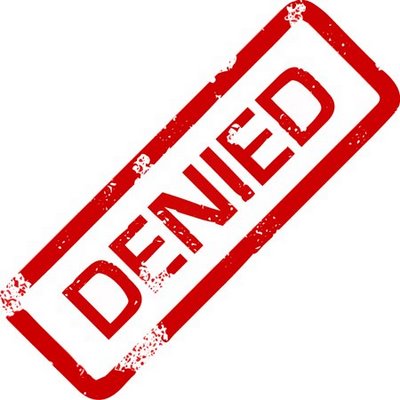Please note that insurance companies do not profit from accepting Workers’ Compensation claims. For this reason, if an insurance company can deny your work comp claim, they will often do so in the interest of protecting their monetary interest. For that reason, it is vital that you do not simply accept a workers comp injury denial and instead that you talk to a qualified attorney that represents injured workers. Our offices have come across thousands of denied cases where the claim was denied but the injured worker still is able to recover a compensation.
The most common type of denial we see are claims where there is “lack of substantive medical evidence.” What that means is that the insurance company claims that there is no medical evidence to link your injury to the job. Usually, a workers’ comp attorney will guide you through the process of obtaining a “medical-legal” evaluation to determine whether or not you actually had an injury on the job. The evaluation usually comes from a Panel Qualified Medical Examiner or “PQME”. Typically, it can take several months to get an appointment with a PQME so it will be important that you talk to your work comp lawyer about your options while you wait for that exam and subsequent report.

Other types of denials, include the “AOE/COE” denial which alleges that your injury was not in the course and scope of employment. In other words, the insurance company would allege that you were not injured because of work. Sometimes, they allege that you were commuting to the job and therefore, your injury was not work related. Other times, they claim that the injury was a result of a separate incident outside of work. There are thousands of different scenarios which could make your claim valid so it is very important that you speak to an attorney about your work comp matter.
Finally, some claims adjusters may assert a post termination defense or statute of limitations defense. In both defenses, the insurance companies will claim that you waited too long to file your claim and that you are therefore not entitled to benefits. There are many exceptions to these rules and it is important that you discuss this with a worker’s compensation attorney before simply giving up on your right to benefits. Make sure that you explain to your work comp attorney all of the facts surrounding your case that led up to your termination and also when you started getting medical treatment. All of this will be vital to determine whether or not you will win in court.
If you have any questions regarding your work related injury that is denied, please do not hesitate to contact us at (510) 257-4141.







